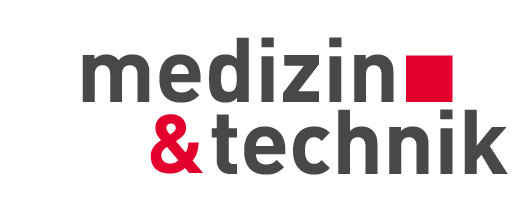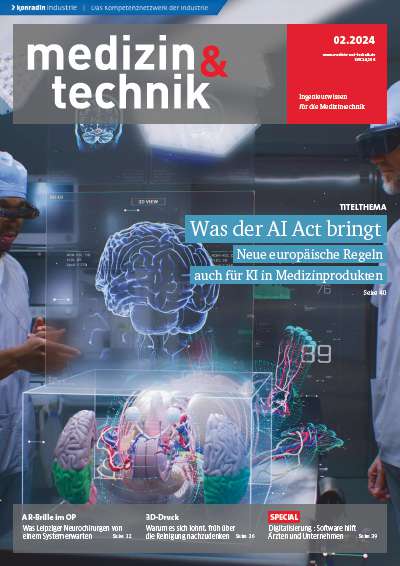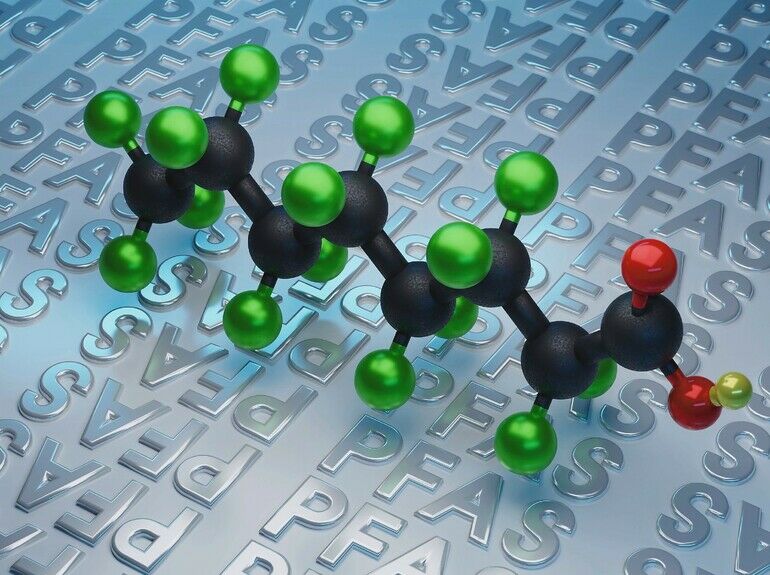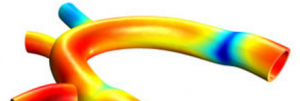Electrolytic plasma polishing does not entail any environmentally harmful chemicals and still produces extremely smooth surfaces. Today it is useful in industrial processes, and the provider of this service handles many orders from medical technology.
High-gloss polished surfaces are in demand for aesthetic and functional applications especially in medical technology. A new process called electrolytic plasma polishing overcomes many disadvantages of traditional polishing methods and produces high-quality surfaces. The process is based on a physical-chemical effect occurring at the surface of electrodes in an electrolytic system under high electrical voltage. The process uses environmentally friendly substances that have a pH of 6 to 7 as electrolytes, which makes the polished parts easy to clean—just by rinsing with tap water.
This is no coincidence: applications in precision mechanics, the optical industry, and medical technology where no contamination is allowed on the tool were in the developers’ sights when they worked out the process a good ten years ago in a cooperation project with industrial enterprises and a research institute. Tobias Weise was involved in the development phase of the project. Now he is a production manager and general manager at Plasotec GmbH, founded in 2007 and located in Rathenow, Germany. Plasotec is primarily a service provider for electrolytic plasma polishing, but also has systems for sale.
Not widely known, the process is often confused with the more common electropolishing. “We use significantly higher voltages to create the plasma, but we do not have to use acids or other aggressive chemicals,” states Weise. “This is an advantage since many parts that we treat are from medical technology.” Some examples are titanium and titanium alloy bone plates and nails used in trauma surgery or stainless steel parts with high requirements on the geometry definition and fitting accuracy, as is required in the manufacturing of surgical instruments and components. Not to be forgotten is the finishing of components whose surface hardening may not be reduced.
Anodically polarized metal tools are submerged in an electrolyte bath containing about 98% water and 2% to 3% salt. Gases form during electrolysis and—depending on the process—a plasma forms that covers the tool like skin. The thermal and electrochemical processes in the plasma layer create “a brilliance on the surface that traditional polishing methods cannot achieve,” says Weise. The process is very well suited to treat surfaces of instruments and implants. It achieves roughness of less than 0.01 µm.
Since the process works with low ablation rates, the fits remain unaffected. “The typical material ablation of less than one micrometer per minute is ten to fifteen times smaller than that of electropolishing,” explains the production manager. “It allows us to polish bone rasps without running the risk of dulling the tools—which can happen with electropolishing even when tools are placed in the bath for short periods.” Plasotec also receives many orders from the dental industry. “Having to deburr tiny milling and drilling tools by hand creates defects easily—but this is not even an issue for electrolytic plasma polishing.
The Rathenow-based company has several systems in operation for tools made of various materials. It has meanwhile gained experience in polishing of several thousand different parts. Weise says that Plasotec needs three to five days to determine the right process parameters and best electrolytes for a new part. Today Plasotec treats individual parts as well as series of up to 30,000 or 50,000 pieces—mostly small parts having dimensions of up to 500 mm x 500 mm x 500 mm. The only thing that cannot be used with plasma polishing are bulk goods. Pretreatment is not required, and welded areas do not have to be pickled before polishing.
Electrolytically plasma-polished surfaces have no cytotoxic effects, as has been proven in tests, and are also protected by passivation effects: The tool receives much oxygen through anodic switching, allowing the chromium oxide layer needed for corrosion resistance to form tightly on the surface.
Partial polishing of implants will soon be possible with new process developments. “In cooperation with a company, we test the polishing of nitinol stents,” reports Weise. The first tests on titanium and stainless steel alloys are very promising.
The process is set to be used in another project for parts with cavities: so far, the electrolyte gets into the cavities, but not the electric field. “We are working on a joint project with the University of Rostock involving cathodes that can be placed inside the cavities so that the plasma layer needed for polishing can form in these spaces as well.”
Dr. Birgit Oppermann birgit.oppermann@konradin.de
About the Service Provider
Plasotec GmbH is located in the Technologie- und Gründerzentrum industrial park in Rathenow, about 100 km outside of Berlin. One of the company’s specialties is electrolytic plasma polishing of metals. This process is designed for all stainless steels, titanium, titanium alloys, nickel and nickel-based alloys, tungsten, molybdenum, cobalt, cobalt chrome, and all non-ferrous metals and their alloys. Currently Plasotec’s main area of business is in medical technology.
Teilen:







